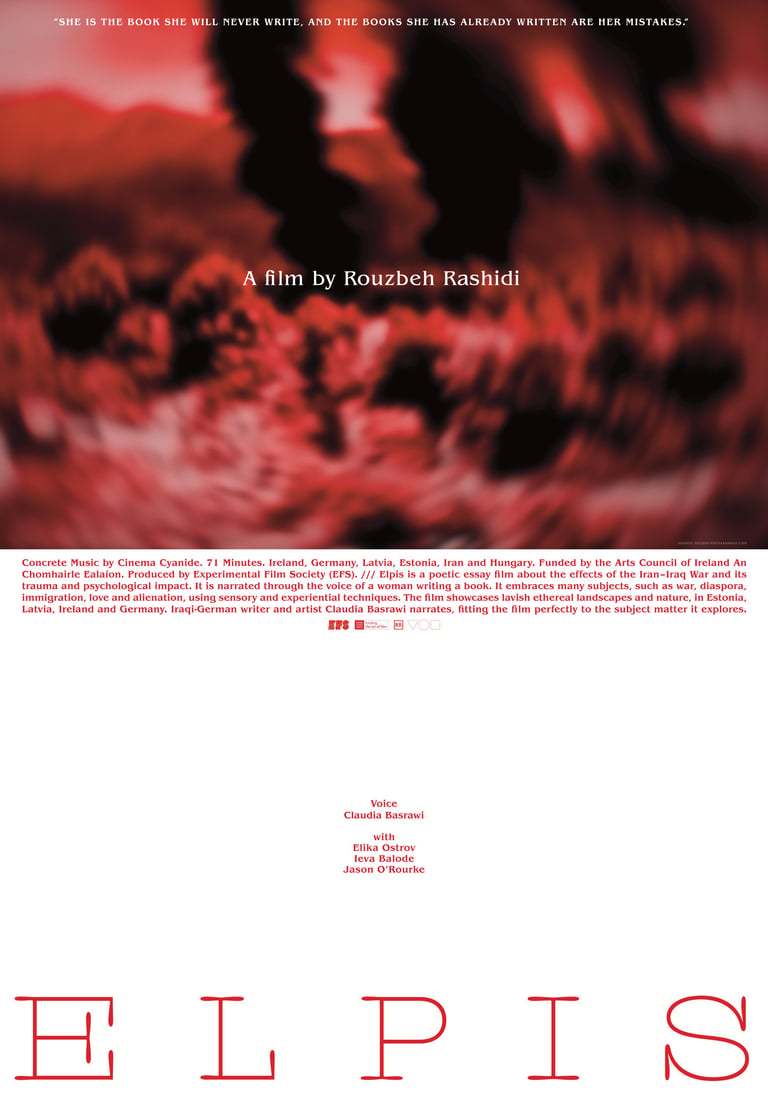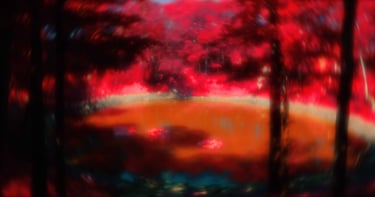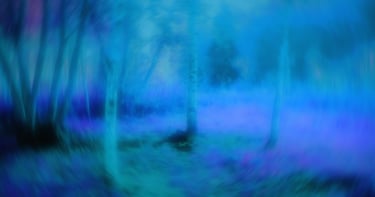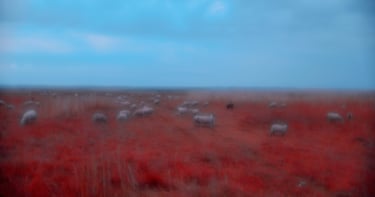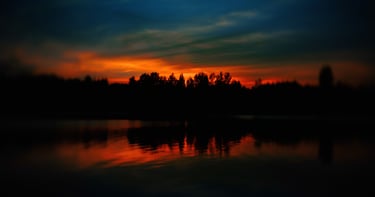Elpis (2023)
Title: Elpis
A Film By Rouzbeh Rashidi
Year: 2023
County of Production: Ireland, Germany, Latvia, Estonia, Iran & Hungary
Genre: Experimental, Essay Film, Documentary
Format: 8K
Language: English
Duration: 71 Minutes
Production: Experimental Film Society
Funding Body: The Arts Council of Ireland
Synopsis:
Elpis is a poetic essay film about the effects of the Iran–Iraq War and its trauma and psychological impact. It is narrated through the voice of a woman writing a book. It embraces many subjects, such as war, diaspora, immigration, love and alienation, using sensory and experiential techniques. The film showcases lavish, ethereal landscapes and nature in Estonia, Latvia, Ireland and Germany. Iraqi-German writer and artist Claudia Basrawi narrates, fitting the film perfectly to the subject matter it explores.
Voice:
Claudia Basrawi.
Music:
Cinema Cyanide.
Director's Statement:
In the realm of film, the insightful Serge Daney discerns that our love for the medium stems from the void left by the absence of a father figure. The cinephile, akin to an orphan, finds solace in the Cinema, a fantastical sanctuary that now becomes a reality. However, it is essential to acknowledge that this diagnosis and doctrine are incomplete without considering the absence of three other crucial elements: country, nation, and, perhaps even more significantly, culture. When these pillars are missing or nonexistent, the individual is compelled to create their own cinematic universe in order to thrive. This dialectical journey ultimately leads to an exquisite form of expression—the poetry of Cinema as a way of life.
The essence of my filmography, epitomized by Elpis, resides in the profound impact of war on my formative years. However, I have intentionally veiled this theme, allowing it to simmer beneath the surface of my films. This artistic choice has endowed my work and career with an enigmatic quality, teetering between clarity and mystery. Within my creations, everything and nothing coexist, giving birth to a surreal and ever-evolving realm. I am cognizant of the existence of this realm, for it is an extension of my being. This duality, simultaneously a curse and a blessing, defines me.
Every film I’ve ever wanted to create has been political in the truest sense of the word. It’s a reflection of my personal experiences and reactions to societal influences. Throughout the decades, I’ve constantly transformed and re-envisioned my life and filmography. While my motivations are political, I never explicitly address them in my films. In an ideal world, films would be devoid of words, images, and sound. However, in reality, this is rarely achievable. Above all, I believe that a film should not ‘mean’ but ‘be’.
Embarking on a two-decade-long odyssey in Cinema, I have always been captivated by the bizarrity aesthetics and enigmatic nuances of my creations. Yet, as an artist, it is undeniable that we are shaped by the times we live in and the environment that surrounds us.
During the years spanning from 2000 to 2019, I pushed the boundaries of formalistic and thematic conventions, delving into radicalism. Little did I know, this intensive exploration was merely a cathartic endeavour aimed at unravelling the tangled threads of my own existence and formation in my birthplace of Iran.
From the gruelling ordeal of eight years of war to the suffocation of limited freedom of speech, the constant threat to personal privacy, the tumultuous journey of immigration to Europe, the disorienting sense of being an outsider, and the chaotic process of rediscovery and rebirth, my life experiences melded with my artistic expression in ways I could never have foreseen.
All this has been utterly and thoroughly expressed and reflected within my films, including Elpis. But if you see these films, you never witness all this because I never believed in subject matters and meanings. It’s the effect and DNA of these events rather than the events themselves. If you cannot create poetry, then what is the point of Cinema?
I have always expressed my true self through my films, embracing a personal, primal, and unintellectual approach. These cinematic creations serve as tangible representations of my own existence, originating from a shattered ancient culture caught between its past and future, with no sense of the present. Like a pseudo-archaeologist, I tirelessly searched for my essence and the circumstances that shaped me. In Iran and perhaps the entire Middle East, the present is merely a fleeting concept. The region is trapped in a perpetual state of limbo and suspension, constantly fixated on the past and future.
To my astonishment and dismay, it is only in recent years that I have discovered a state of inner peace and tranquillity. Despite the persistence of vulgarity, barbarism, and atrocities, I am achieving a sense of harmony and control. Everything now holds a new and profound significance, marking the beginning of a new chapter in my cinematic journey with Elpis.
Crafting a ‘fluid identity’ to navigate the challenges of immigration has been essential for me personally. Over the years, this process of deconstructing and reinventing language and identity has become the cornerstone of my filmmaking practice. Initially, instead of associating myself with any specific country, I found solace in being part of the world of Cinema and exile. These physical and mental spaces have become my true home. Thus, every film I create is fueled by the ‘agony’ that resides within my heart.
In the world of filmmaking, intentions need not define the artist. There is no obligation for deep contemplation or hidden meanings behind every frame. At times, even the creators themselves may remain unsure of the visions they birthed. Yet, these filmmakers possess a profound ability to evoke emotions and stir sensations within their audience.
But what if, amidst the prevailing beliefs, a different purpose emerges? What if the essence of filmmaking lies in concealing intentions, dissolving meanings, and rendering everything invisible instead of laying it bare? What if the goal is not to describe but to poeticize every aspect of cinematic art? Such is the journey I embarked upon with “Elpis.”
All my films, including Elpis, are about the ‘life’ I had never lived but experienced. In the same way, we do not know how to live, yet we live our lives. To me, at least living remains an utter mystery and enigma. We do not know that we are living consciously but rather condemned to it. Therefore, as a poetic revolt against this condemnation and an attempt to grasp this phenomenon, we conveyed a ‘life’ itself to existence: ‘art (cinema)’.
Elpis represents a departure from my previous work in feature filmmaking, exploring new dimensions of art and humanity that have always captivated me. It delves into the potential of slow Cinema, poetic documentary approaches, and film essays. I’ve also incorporated language, text, and poetic screenplay.
Visually, Elpis employs specifically developed and hand-crafted cinematography, optical approaches, colour grading, and sound design. Shot in the depths of nature in the Baltic countries, including Latvia and Estonia, with additional scenes shot in Ireland and Germany. My method mirrored that of a Pictorialism photographer, embracing complete seclusion and solitude.
Elpis is a poetic essay film that explores the effects of the Iran-Iraq War and its lasting trauma and psychological impact. Through a woman’s voice writing a book, we delve into themes of war, diaspora, immigration, love, and alienation, using sensory and experiential techniques.
Awards:
Special mention in the “STUDENT JURY AWARD” category at the Flight / Mostra Internazionale del Cinema di Genova.
Reviews:
“Elpis is Rashidi’s most personal piece to date and comes at a time when déjà-vus dominate our lives. Each frame’s prominent darkness hides a light that points to perhaps one of the most human feelings: hope.” - Nadin Mai
“This is the agony at the heart of Rashidi’s art: an agony of exile, distance, displacement. In terms of cinematic poetry and creative expression, that translates across to a voluptuous sense of everything that is ungraspable, unrepresentable. Time is effervescent, and memories decay. Images and sounds cleave away from each other at any direct level, but join up again at a higher plane of emotion and intuition.” - Cristina Álvarez López & Adrian Martin
“Regardless of how you look at it, Elpis is a technically polished and aesthetically magnificent proof that even the most sublimely personal works of (the seventh) art possess a razor-sharp political edge and can use it to confront the disturbances in the current Zeitgeist, as they ensure their place in the Pantheon of Timelessness.” - Nikola Gocić
